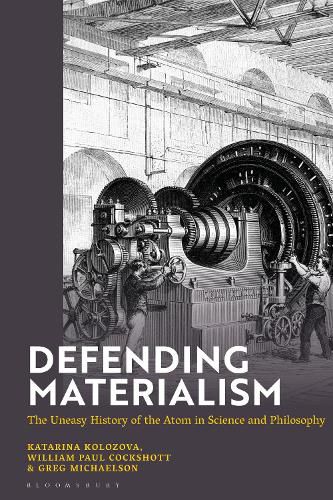Readings Newsletter
Become a Readings Member to make your shopping experience even easier.
Sign in or sign up for free!
You’re not far away from qualifying for FREE standard shipping within Australia
You’ve qualified for FREE standard shipping within Australia
The cart is loading…






Nobody doubted that atoms were real once atomic energy was developed, but in the early 20th-century and before their existence was widely doubted. Defending Materialism follows the political and theoretical background of this intense philosophical controversy, defending atomistic and mechanical materialism against idealist paradigms. These accounts range from the explicit idealism criticised by Lenin and Einstein to the implicit Hegelian idealism that influenced Soviet dialectical materialism. Following several key threads, the authors trace how the idea of atoms has changed over the centuries, how ideology has influenced both sides of the idealism/materialism divide, and how the nature of time in physics, biology and human society can give a fresh view of historical materialism. Starting from the origins of materialism in ancient Greek thought and moving through its revival in Isaac Newton and Charles Darwin gives a full picture of the links between the Marxist tradition and the 'coarse materiality' to which the worlds of science and philosophy have found themselves both subscribed and averse.
$9.00 standard shipping within Australia
FREE standard shipping within Australia for orders over $100.00
Express & International shipping calculated at checkout
Nobody doubted that atoms were real once atomic energy was developed, but in the early 20th-century and before their existence was widely doubted. Defending Materialism follows the political and theoretical background of this intense philosophical controversy, defending atomistic and mechanical materialism against idealist paradigms. These accounts range from the explicit idealism criticised by Lenin and Einstein to the implicit Hegelian idealism that influenced Soviet dialectical materialism. Following several key threads, the authors trace how the idea of atoms has changed over the centuries, how ideology has influenced both sides of the idealism/materialism divide, and how the nature of time in physics, biology and human society can give a fresh view of historical materialism. Starting from the origins of materialism in ancient Greek thought and moving through its revival in Isaac Newton and Charles Darwin gives a full picture of the links between the Marxist tradition and the 'coarse materiality' to which the worlds of science and philosophy have found themselves both subscribed and averse.